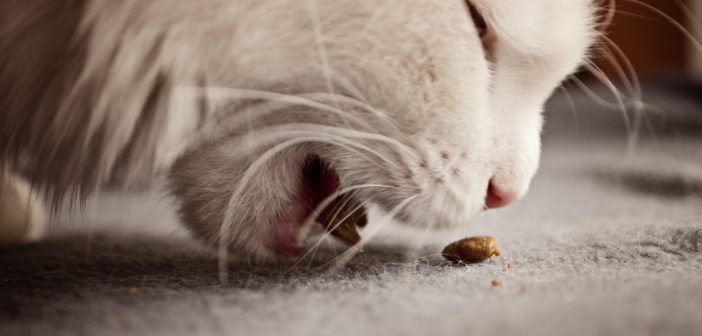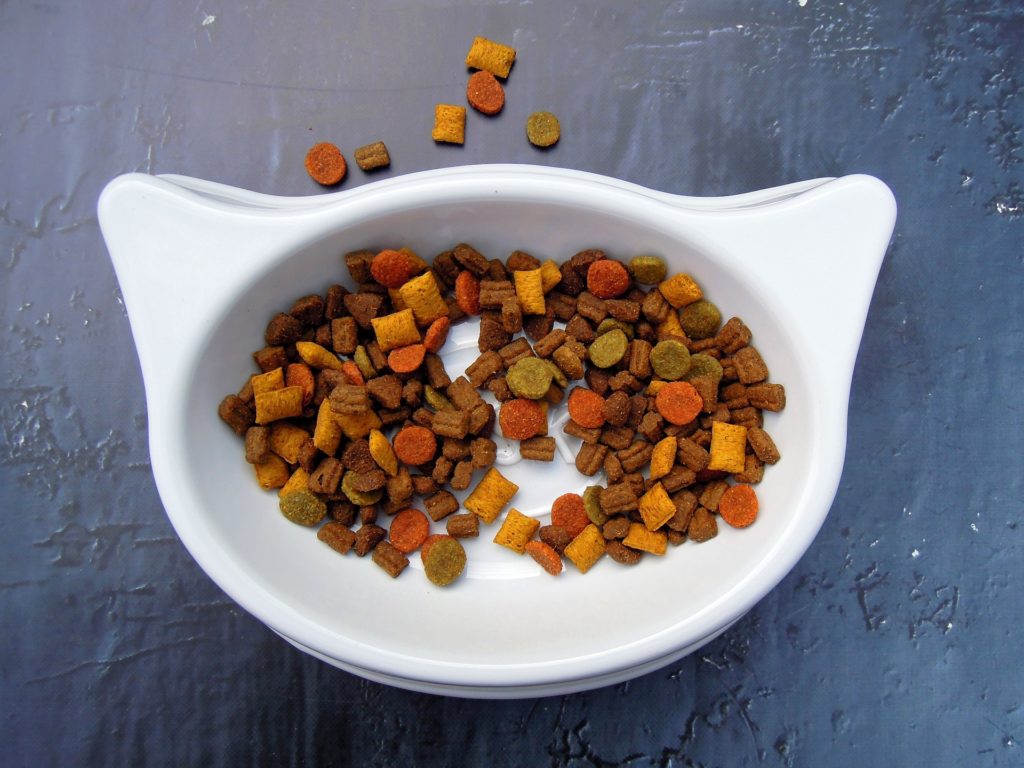Most people do not realize that a majority of pet food is composed primarily from food industry waste. Eyes, bones, feathers and birds beaks, blood, intestines, tendons, mammary glands, gullets and sick, rotten or cancerous body parts: this is what is behind the so called by-products used to make commercial pet food.
Meat and bone meal, called MBM, is a product of the meat industry. It is composed primarily of the leftovers and bones of slaughtered livestock, fat and unmarketable animal tissues. Animal fat and MBM often come from a mix of different animal species. Horse DNA has been found in pet food, as well as unidentified animal DNA or DNA from farmed animals not listed on the ingredients label.
In the United States, according to the former president of the The Association of American Feed Control Officials, it is not illegal to use euthanized cats and dogs in the production of pet food, and in many cases there is no way to tell by looking at the ingredients list which species of animals were used to make the food. Animal fat and MBM are the ingredients in pet food most likely to correlate with the presence of sodium pentobarbital, the drug used by veterinarians for euthanasia.
There is only one way to avoid picking up pet food that might contain parts of dead cats and dogs: never buy any product made with unidentified animal ingredients.
The pet food production process does not always succeed in eradicating cattle growth hormones, antibiotics or barbiturates from the end result. High-temperature cooking can degrade the nutritional value of the product, while at the same time it does not fully remove the danger of contamination by bacteria and toxins. Certain producers cook pet food directly in the can, which can cause harmful chemicals from the lining of the can to leach into the food.
Many pet foods contain a variety of human-made chemical compounds, some of which are very harmful, such as additives, preservatives, flavor enhancers, coloring agents, and appetite stimulants. Propyl gallate is used as synthetic preservative in pet food, but it is also an de-icing chemical and a substance similar to Agent Orange.
Coloring agents are often tested on animals and in massive doses can cause serious health problems (such as high cholesterol and the reduction of hemoglobin and red blood cells). Unbelievably, pet food manufacturers are not required to indicate the presence of these chemical compounds on labels.
Rancid fats are responsible for the pungent smell of much wet and dry pet food and can cause allergic reactions and other health issues. These type of fats are preserved with chemical solutions and then sprayed on the food to improve taste.
In the last ten years, the quantity of wheat in pet food has increased. The majority of pet food product formulations contains too many grains, including corn, wheat, rice, soy flour, and peanuts shells. In addition, many products contain other questionable and unnecessary ingredients. Many pet food brands indeed load up their products with inexpensive low-quality fillers that are hardly digestible for cats and dogs.
As a pet guardian, it is your job to keep track of what your animals are eating and to make sure that the food you give them will provide for their nutritional needs. Among the most common causes of death for both cats and dogs are diseases affiliated with poor diet.
Urinary tract diseases, allergies and intolerances, behavioral disorders, cancer, obesity, cardiovascular disease, vomit and diarrhea are only some possible side effects of feeding our pets low quality industrial wet and dry food. Poor quality ingredients, contamination with bacteria, mold, toxins and pharmacological residuals, poor nutritional value and an excessive use of additives are the main causes.
High-quality pet food instead offers benefits to both cats and dogs. If possible, the best way to feed your pet is with whole foods, but take into account that they have different needs than humans and therefore their diet must be followed by a veterinarian or a nutrition specialist. There are also prepared pet foods with high quality ingredients and appropriate nutritional content. If you value your animal’s health, making sure you feed them healthy food is one of the most important measures you can take.
The following brands should be avoided:
• Nestlé: Felix, Friskies, Gourmet, Purina, Affinity Petcare
• Colgate-Palmolive: Hill’s (Science Diet, Canine Maintenance)
• Mars: Whaltam, Cesar, Pedigree, Chappi, Frolic, Sheba, Whiskas, Kitekat, Royal Canin
• Procter & Gamble: Iams (Eukanuba, etc.)
• Nutro
• Heinz
Featured image: A cat eating. Image via Pixabay.






